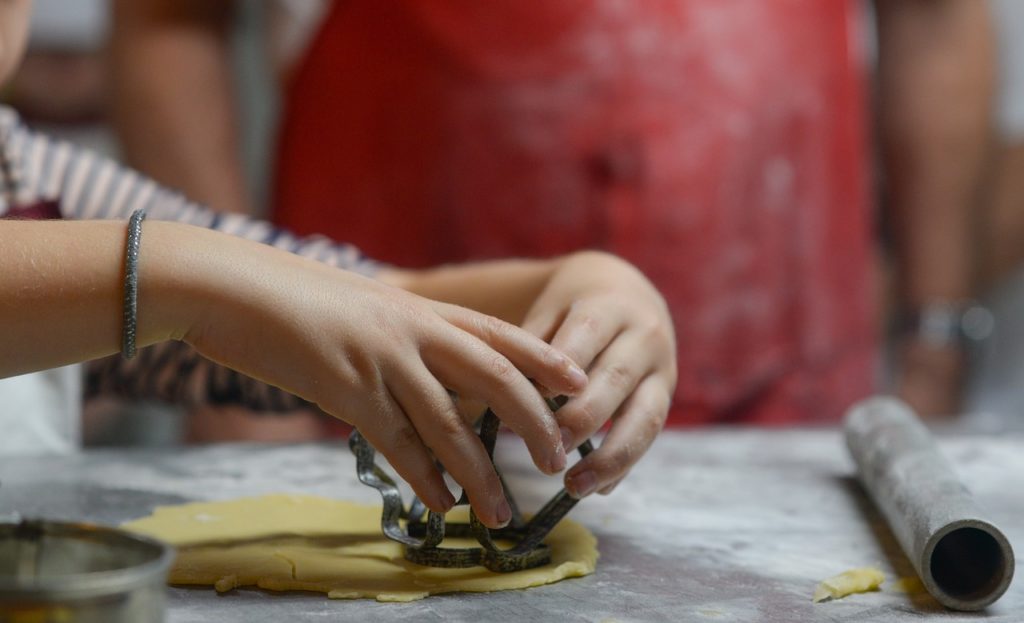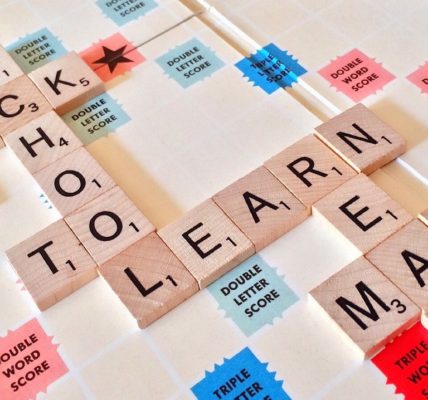
The Benefits of Cooking Games for Kids
Cooking games offer a fun and interactive way for kids to engage in imaginative play while learning valuable skills. These games provide numerous benefits that contribute to a child’s development and overall well-being.
Introduction to Cooking Games
Cooking games for kids simulate the experience of being in a kitchen, allowing them to explore the culinary world in a safe and enjoyable manner. Whether it’s virtually cooking meals, playing with toy kitchen sets, or engaging in board and card games centered around cooking, these games provide a unique and entertaining way for children to express their creativity and curiosity.
Educational Value of Cooking Games
Cooking games have significant educational value for kids. They offer opportunities for children to learn about various aspects of cooking, including food preparation, recipe comprehension, ingredient recognition, and kitchen safety. By following virtual or pretend recipes, kids develop their reading and comprehension skills. They also gain knowledge about different foods, ingredients, and cooking techniques.
Additionally, cooking games can introduce basic math concepts. Children may need to measure ingredients, count the number of items, or follow cooking times and temperatures. These activities help strengthen their numerical skills and enhance their understanding of measurements and fractions.
Development of Skills and Abilities
Playing cooking games can foster the development of several important skills and abilities in children. Here are some key areas where cooking games can have a positive impact:
- Fine Motor Skills: Manipulating virtual utensils, cutting ingredients, and stirring virtual pots and pans can enhance a child’s fine motor skills and hand-eye coordination.
- Problem-Solving and Critical Thinking: Cooking games often require kids to think critically and make decisions. They may need to troubleshoot recipe issues, adjust cooking times, or find alternative ingredients. This fosters problem-solving and critical thinking abilities.
- Creativity and Imagination: Cooking games encourage children to use their imagination and explore their creativity. They can experiment with different flavors, create unique recipes, and design their own virtual restaurants or cafes.
- Social Skills and Teamwork: Some cooking games allow for multiplayer or cooperative play, promoting social interaction and teamwork. Kids can collaborate, assign roles, and work together to achieve a common goal.
- Confidence and Independence: Successfully completing tasks in cooking games can boost a child’s confidence and sense of accomplishment. It also encourages them to take initiative and become more independent in real-life cooking activities.
By embracing cooking games, parents provide their children with a platform to learn, grow, and have fun. These games offer a safe and interactive way for kids to explore the world of cooking, develop essential skills, and ignite their passion for culinary adventures.
Types of Cooking Games for Kids
Cooking games for kids come in various formats, providing enjoyable and educational experiences. Let’s explore three common types of cooking games that can entertain and engage young aspiring chefs: virtual cooking games, board and card games, and role-playing and pretend play.
Virtual Cooking Games
Virtual cooking games offer an immersive experience where kids can simulate cooking in a digital environment. These games are often available as mobile apps or online platforms. With virtual cooking games, children can explore different recipes, ingredients, and cooking techniques through interactive gameplay. They can follow step-by-step instructions, customize dishes, and even manage virtual restaurants or cafes.
These games provide a safe space for kids to experiment and unleash their creativity in the kitchen. They can learn about various cuisines, nutrition, and food preparation in a fun and engaging way. Virtual cooking games also promote problem-solving skills as kids face challenges and time constraints while cooking virtually.
Board and Card Games
Board and card games focused on cooking offer a hands-on and social experience for kids. These games typically involve collecting ingredients, following recipes, and competing with other players. By playing these games, children can learn about different foods, measurements, and cooking techniques while enjoying quality time with family and friends.
Board and card games provide opportunities for strategic thinking, decision making, and teamwork. They can enhance cognitive skills, such as memory, concentration, and problem-solving. Some cooking-themed board games even introduce basic math concepts as players count ingredients or manage resources.
Role-Playing and Pretend Play
Role-playing and pretend play activities allow kids to unleash their imagination and creativity in the culinary world. Through pretend play, they can pretend to be chefs, restaurant owners, or contestants in cooking competitions. Kids can use play kitchen sets, toy utensils, and pretend food to create their own cooking adventures.
Role-playing and pretend play activities encourage storytelling, language development, and social interaction. Children can practice communication skills, cooperation, and sharing as they engage in imaginative cooking scenarios. These activities also provide opportunities for fine motor skill development as kids handle small kitchen tools and play food.
By exploring these different types of cooking games, parents can find suitable options that align with their child’s interests and learning style. Whether through virtual cooking games, board and card games, or role-playing and pretend play, kids can have fun while developing valuable skills in the kitchen.
Features to Look for in Cooking Games
When choosing cooking games for your kids, it’s important to consider certain features to ensure an enjoyable and safe gaming experience. Here are some key features to look for when selecting cooking games for your little ones.
Age Appropriateness
The first thing to consider is the age appropriateness of the cooking game. Games designed for younger children will have simpler gameplay and user interfaces, while those for older kids may involve more complex tasks and challenges. It’s important to choose a game that aligns with your child’s age and abilities to ensure they can fully engage and understand the gameplay. This will help them have a positive and enjoyable experience.
Game Mechanics and Interactivity
Another important feature to consider is the game mechanics and interactivity of the cooking game. Look for games that provide various activities and tasks related to cooking, such as ingredient preparation, cooking techniques, and recipe creation. Games that offer a wide range of interactive elements, such as dragging and dropping ingredients, stirring, slicing, and decorating, can enhance the overall gaming experience and keep your child engaged for longer periods.
Additionally, consider games that incorporate educational elements, such as teaching basic cooking skills, introducing different ingredients and their properties, and promoting healthy eating habits. These features can make the gaming experience not only entertaining but also educational and beneficial for your child’s development.
Safety and Parental Controls
When it comes to online gaming, ensuring the safety of your child is of utmost importance. Look for cooking games that provide safety features and parental controls. These may include options to disable in-app purchases, restrict online interactions, and limit screen time. Parental controls can help you monitor and manage your child’s gaming activities, ensuring they have a safe and controlled gaming experience.
Before allowing your child to play any cooking game, it’s recommended to review the game’s privacy policy and terms of service to understand how personal information is handled and whether any third-party advertisements or links are present. By being vigilant and selecting games that prioritize safety, you can provide your child with a secure and enjoyable gaming environment.
By considering the age appropriateness, game mechanics and interactivity, and safety features, you can choose cooking games that align with your child’s interests and provide a valuable learning experience. Remember to engage with your child during their gaming sessions, discussing recipes, encouraging creativity, and exploring real-life cooking activities together. Cooking games can be a fun and interactive way for kids to develop their culinary skills and fuel their creativity.
Popular Cooking Games for Kids
Cooking games for kids offer a fun and interactive way for children to explore their culinary creativity. Here are three popular cooking games that are sure to entertain and engage young aspiring chefs.
Certainly! Here are the details of the mentioned games in the requested format:
Toca Kitchen 2
- Game Description: A virtual kitchen where kids can experiment with different ingredients and cooking methods to create their own dishes.
- Age Range: 6-8 years
- Platform: iOS, Android
- Key Features:
- Creative free-play cooking environment.
- Experiment with various food combinations.
- Kid-friendly interface and graphics.
Cooking Mama
- Game Description: A classic cooking game where players follow recipes to create dishes, learning about following instructions and basic cooking techniques.
- Age Range: 7-12 years
- Platform: iOS, Android, Nintendo DS
- Key Features:
- Follow recipes to create a variety of dishes.
- Mini-games that teach basic cooking skills.
- Colorful and engaging graphics.
Dr. Panda Restaurant
- Game Description: Kids run their own restaurant, prepare food, and serve it to customers, learning about food preparation and customer service.
- Age Range: 4-7 years
- Platform: iOS, Android
- Key Features:
- Run a restaurant and serve customers.
- Learn basic food preparation techniques.
- Explore creativity in cooking.
Good Pizza, Great Pizza
- Game Description: Run a pizza shop, create pizzas, manage orders, and serve customers.
- Age Range: 8-12 years
- Platform: iOS, Android
- Key Features:
- Manage a pizza shop and fulfill customer orders.
- Learn about different pizza toppings and recipes.
- Engaging storyline and characters.
Cooking in the Kitchen
- Game Description: Choose what to cook and learn how to prepare it with interactive gameplay.
- Age Range: 4-8 years
- Platform: iOS, Android
- Key Features:
- Variety of recipes to choose from.
- Interactive cooking process.
- Learn about different foods and how they are prepared.
Cooking Fever
- Game Description: Manage a restaurant, prepare food, and serve customers to earn coins and expand the business in a fast-paced gameplay environment.
- Age Range: 10-14 years
- Platform: iOS, Android
- Key Features:
- Fast-paced restaurant management gameplay.
- Variety of cuisines and restaurant settings.
- Upgrade and expand the restaurant with earned coins.
Iron Chef America – Supreme Cuisine
- Game Description: Compete in cooking challenges based on the popular cooking show.
- Age Range: 10-14 years
- Platform: Nintendo DS, Wii
- Key Features:
- Competitive cooking challenges.
- Based on the popular TV show.
- Learn advanced cooking techniques.
Overcooked!
- Game Description: A cooperative cooking game where players work together to prepare and serve meals in a variety of challenging and whimsical kitchens.
- Age Range: 10-16 years
- Platform: PC, Xbox, PlayStation, Nintendo Switch
- Key Features:
- Cooperative gameplay for up to four players.
- Challenging and whimsical kitchen settings.
- Variety of recipes and cooking challenges.
Ratatouille: Food Frenzy
- Game Description: Help Remy the rat cook and serve meals in a busy restaurant based on the popular Pixar film.
- Age Range: 7-12 years
- Platform: Nintendo DS
- Key Features:
- Based on the popular Pixar film.
- Cook and serve a variety of dishes.
- Engaging storyline and characters.
Happy Cooking: Chef Fever
- Game Description: Explore various cuisines and learn how to prepare different dishes in a fun and interactive way.
- Age Range: 6-12 years
- Platform: iOS, Android
- Key Features:
- Explore different cuisines and recipes.
- Interactive cooking gameplay.
- Engaging graphics and sound effects.
These are just some examples of the wide variety of cooking games available for kids. When choosing a cooking game for your child, consider their age range, interests, and the platform on which they will be playing. Remember to also check for safety features and parental controls to ensure a safe and enjoyable gaming experience.
For more game suggestions and recommendations for kids, check out our articles on party games for kids, board games for kids, and card games for kids. Let the culinary adventures begin!
Tips for Parents When Choosing and Playing Cooking Games
Cooking games can be a fun and educational way for kids to explore their creativity in the kitchen. As parents, it’s important to guide and monitor their gaming experiences to ensure they are getting the most out of these activities. Here are some tips to keep in mind when choosing and playing cooking games with your kids.
Setting Time Limits and Monitoring Screen Time
Just like any other form of entertainment, it’s important to set time limits and monitor your child’s screen time when playing cooking games. While these games can be engaging and educational, it’s crucial to strike a balance and encourage a variety of activities. Consider using timers or setting specific playtime schedules to ensure that gaming remains a part of a well-rounded routine.
Encouraging Real-Life Cooking Activities
Cooking games can inspire real-life culinary exploration. Encourage your child to take their virtual cooking skills to the kitchen by involving them in age-appropriate cooking activities. This hands-on experience allows them to apply what they’ve learned in the game to real-world situations. Start with simple recipes and gradually introduce more complex ones as their skills develop. Cooking together can also be a great bonding opportunity for the whole family.
Engaging in Cooperative Play
Many cooking games offer multiplayer or cooperative play options. Participating in these features can enhance your child’s social skills and promote teamwork. Encourage your child to play with siblings, and friends, or even join online communities dedicated to cooking games. Cooperative play fosters communication, problem-solving, and collaboration, creating a more enriching gaming experience.
By following these tips, you can ensure that your child’s cooking game experiences are enjoyable, educational, and balanced. Remember to consider the age appropriateness of the games, explore different game mechanics and interactivity, and prioritize safety and parental controls. For more ideas on engaging and educational games for kids, check out our articles on party games for kids, board games for kids, and card games for kids.






